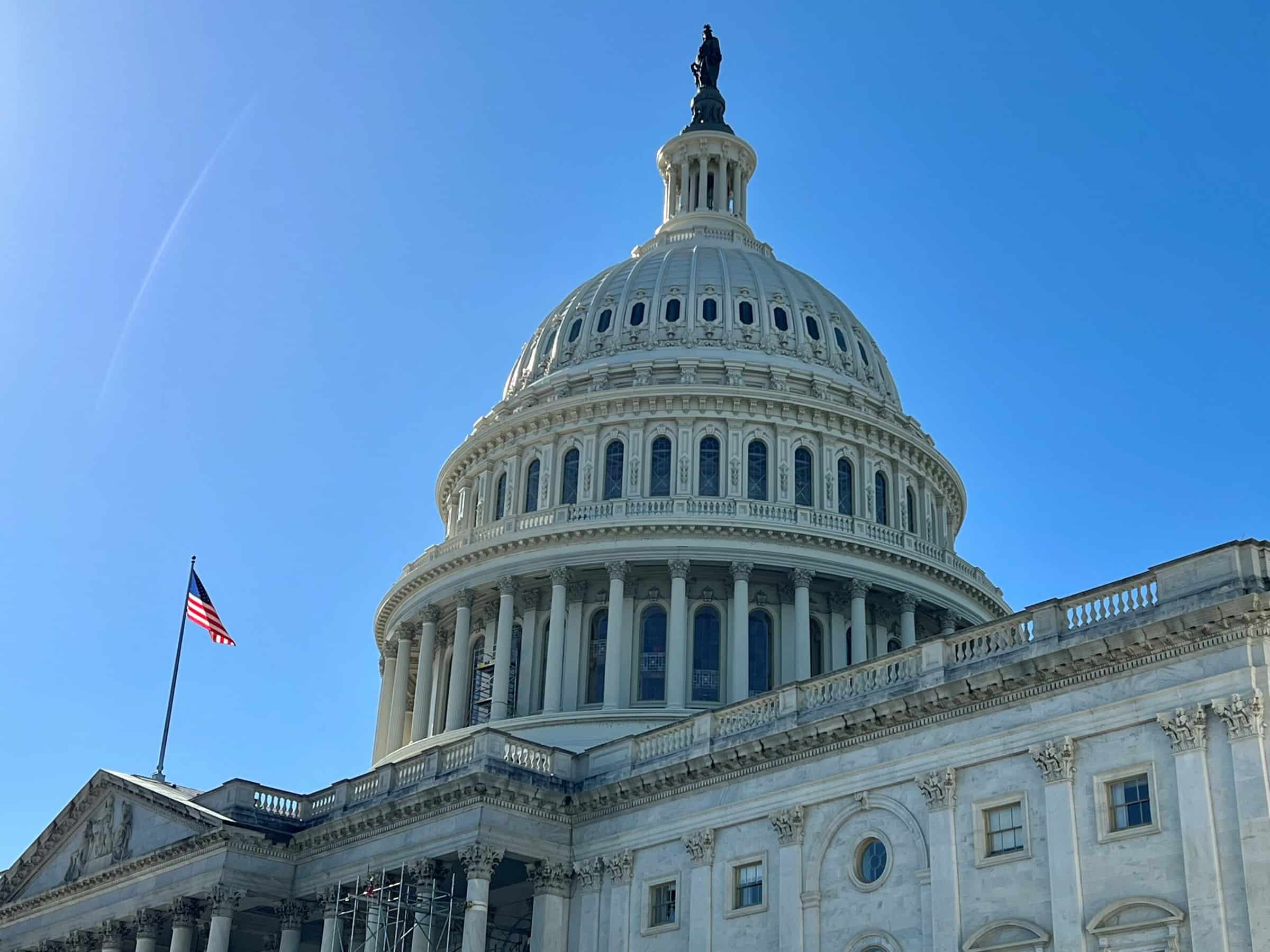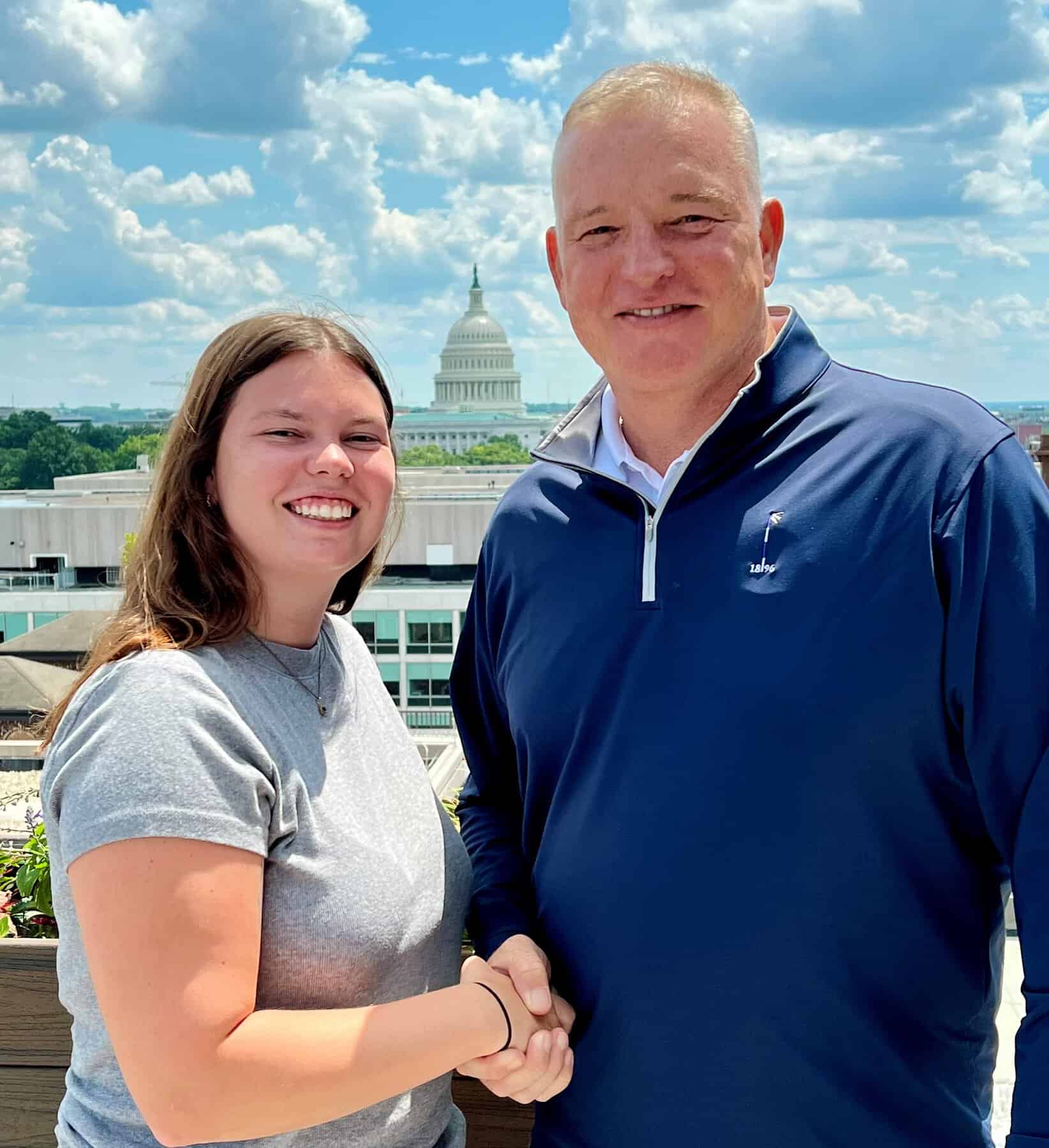
Welcome to NTRA’s What’s Racing Through Washington newsletter, your one-stop source for all things Thoroughbred racing in Washington, D.C. As we transition into the autumn season, Congress is gearing up for crucial end-of-year legislation that could significantly influence our industry. We hope you’ll find the newsletter informative, and we eagerly anticipate further discussions with you on matters affecting the Thoroughbred industry.

Lawmakers Grapple with Looming Shutdown and Funding Priorities
Lawmakers are under considerable pressure, with a looming deadline of September 30th to chart a course of action to prevent a government shutdown and address the pressing needs for disaster relief. Upon returning from their recess, Senators found themselves with a mere 17 legislative days, while House members had even less, with just 11 days remaining. Speaker Kevin McCarthy and Senate Majority Leader Chuck Schumer have tentatively reached a consensus on a stopgap measure that would sustain government funding until early December, a proposal that garners support from Senate Minority Leader Mitch McConnell as well.
However, Schumer has issued a cautionary note against potential “hostage-taking” by the more “extreme” House Republicans, and McConnell has expressed skepticism regarding the spending plans put forth by the House GOP. The source of the necessary votes and the extent of additional spending to be incorporated into the measures remain uncertain. The pivotal role of House conservatives in determining the outcome of spending matters, such as funding for Ukraine, disaster relief, and border issues, cannot be overstated, especially considering that some conservatives have already expressed their opposition to extending a stopgap spending bill into December.
On the other hand, the Biden administration has put forth a request for a short-term funding package extending until mid-December, encompassing temporary spending increments to address surges in migrant populations, bolster nutrition programs, and meet emergency expenditure requirements. However, this request encounters resistance from certain Republicans who contend that any spending should be counterbalanced by corresponding budget cuts. Should Speaker McCarthy fail to corral his caucus effectively, the prospect of a government shutdown becomes increasingly likely.

NTRA President and CEO Tom Rooney with NTRA’s summer intern Abby Sheffield, a rising senior in the University of Louisville’s Equine Studies Program
Farm Bill Uncertainty: Congress Faces Deadline for Critical Agricultural Legislation
With a limited number of legislative days remaining in September, it is likely that Congress will allow the current Farm Bill to expire, with the intention of passing a new one in December. Historically, the Farm Bill has enjoyed bipartisan support, with lawmakers from both major parties working together on its formulation and approval. Given its significance and bipartisan nature, NTRA views the Farm Bill as one of the few pieces of legislation with the potential for passage this year. NTRA is actively in discussions with the House and Senate Agriculture Committees to explore the inclusion of key initiatives, such as 3-year depreciation for yearlings.
If the Farm Bill expires without a replacement, certain programs will lose their authorization, and others will revert to the rules established in the original 1933 Farm Bill. Programs funded by mandatory spending will have specific expiration dates and cannot continue without an extension or reauthorization. The funding for these programs is explicitly outlined in the Farm Bill, typically on an annual basis throughout the bill’s duration. Most programs with mandatory funding from the 2018 Farm Bill are funded through 2023. However, programs with authorized but unappropriated mandatory spending, such as the Supplemental Nutrition Assistance Program (SNAP), could potentially continue operating with appropriations or a continuing resolution. While allowing the Farm Bill to expire is not an ideal scenario, Congress would have until January 1, 2024, to pass a new bill before any significant disruptions occur.
Tax Debates and Internal Disputes Take Center Stage
As Congress reconvenes following a month-long recess, the focus is squarely on tackling a backlog of pressing tasks that remained unresolved in July. One key item on the agenda is the crafting of a year-end tax package. Yet, time is of the essence as lawmakers grapple with bridging the gap between the Republican Party’s desire to extend various business tax incentives and the Democrats’ push for expanding the child tax credit.
Within the House Republican caucus, there’s a spirited internal debate about the inclusion of changes to the state-and-local tax deduction cap in their proposed package. This cap is viewed as an initial step in potential negotiations and is pivotal to reaching a tax agreement, especially given the party’s unstable hold on the majority.
The State and Local Tax (SALT) deduction allows U.S. taxpayers to deduct specific state and local taxes from their federal income tax returns. Typically, these taxes encompass state income taxes, property taxes, and sales taxes paid to state and local governments. The SALT deduction has been a contentious issue in tax policy discussions. Some argue that it primarily benefits residents of high-tax states, while others contend that it alleviates the burden of double taxation and supports the funding of essential services by state and local governments. In 2017, the Tax Cuts and Jobs Act imposed a cap on the SALT deduction, limiting it to $10,000 annually. This cap has sparked ongoing debates and negotiations regarding its impact on taxpayers, particularly those in areas with higher state and local taxes. As the pressure to pass the tax bill mounts, discussions surrounding the SALT issue have gained momentum, with lawmakers exploring ways to raise the current cap and address associated costs.
A vocal group of lawmakers from vulnerable districts have made it clear that they will not support any tax package that does not address the SALT deduction issue. Additionally, the tax legislation stalled in the House includes a provision for the restoration of a 100% bonus depreciation. The National Thoroughbred Racing Association (NTRA) has been actively engaging with this group of centrist Republicans, emphasizing the critical role of 100% bonus depreciation in bolstering the equine economy and promoting robust business investments within their districts and states.
Shaping the Future of the U.S. Equine Industry: Your Input Matters (USDA Survey)
The National Animal Health Monitoring System (NAHMS) Unit is responsible for conducting comprehensive national studies on the health and management of various sectors within the United States’ domestic animal population, including livestock, equine, aquaculture, and poultry. In the past, NAHMS has carried out studies on the health and management practices of U.S. equine operations in the years 2015, 2005, and 1998. Additionally, NAHMS has published valuable epidemiological reports concerning diseases like EHV-1 and piroplasmosis.
Currently, NAHMS is in the developmental phase of its fourth national study focused on the U.S. equine industry. In this endeavor, your input is highly sought after to help shape the study’s objectives. This is your unique opportunity to express the specific information you wish to learn about the equine industry.
To provide your valuable insights, we encourage you to participate in a brief 10-minute survey. The survey will remain open for responses until October 1, 2023.
The forthcoming NAHMS equine study, tentatively scheduled for 2026, promises to offer crucial insights into the management practices employed by U.S. equine operations. Furthermore, it will undertake an extensive nationwide examination of the most pressing health issues within the industry. Your input is essential in helping us address the specific needs and knowledge gaps within the equine sector.
To take the survey click HERE.
US Labor Dept Proposes Stronger Protections for Farm Temp Workers
The U.S. Department of Labor announced on Thursday, September 14, a proposed a new rule that would strengthen protections for farm workers in the H-2A program and help prevent abuses that undermine wages and standards for all agricultural workers. The proposed rule would add new protections for worker self-advocacy, better protect workers against retaliation, make foreign labor recruitment more transparent and enhance the department’s enforcement. This proposal builds on a final rule the department published in October 2022 that modernized key aspects of the H-2A program.
The proposed rule includes:
- Adding new protections for worker self-advocacy. The proposed rule would improve workers’ ability to advocate for better working conditions by expanding and clarifying existing anti-retaliation protections. The proposed rule would also expand workers’ rights to invite and accept guests – including labor organizations – to employer-provided housing.
- Making wages more predictable. The proposed rule would make wages more predictable in the H-2A program by making new wage rates applicable immediately upon their publication in the Federal Register rather than weeks later. This will ensure that agriculture workers are paid the most up-to-date wages as soon as possible. The rule would also require employers who fail to provide adequate notice to workers of a delay in their start date to pay workers the applicable rate for each day that work is delayed for up to 14 days. The proposal would further require enhanced transparency for employers to communicate minimum productivity standards, applicable wage rates, overtime opportunities and delayed start dates to workers.
- Enhancing enforcement to improve program integrity. The proposed rule would increase the speed with which the debarment of any business that violates H-2A program rules becomes effective by streamlining deadlines for Office of Foreign Labor Certification integrity and Wage and Hour Division enforcement actions. The proposed rule would also make it easier for the workforce system to discontinue necessary recruitment services for employers who have failed to meet program requirements. Finally, the proposed rule would prohibit employers from holding or confiscating a worker’s passport, visa, or other immigration or government identification documents.
Read the full press release HERE.
For more information and regular updates please visit www.ntra.com.
